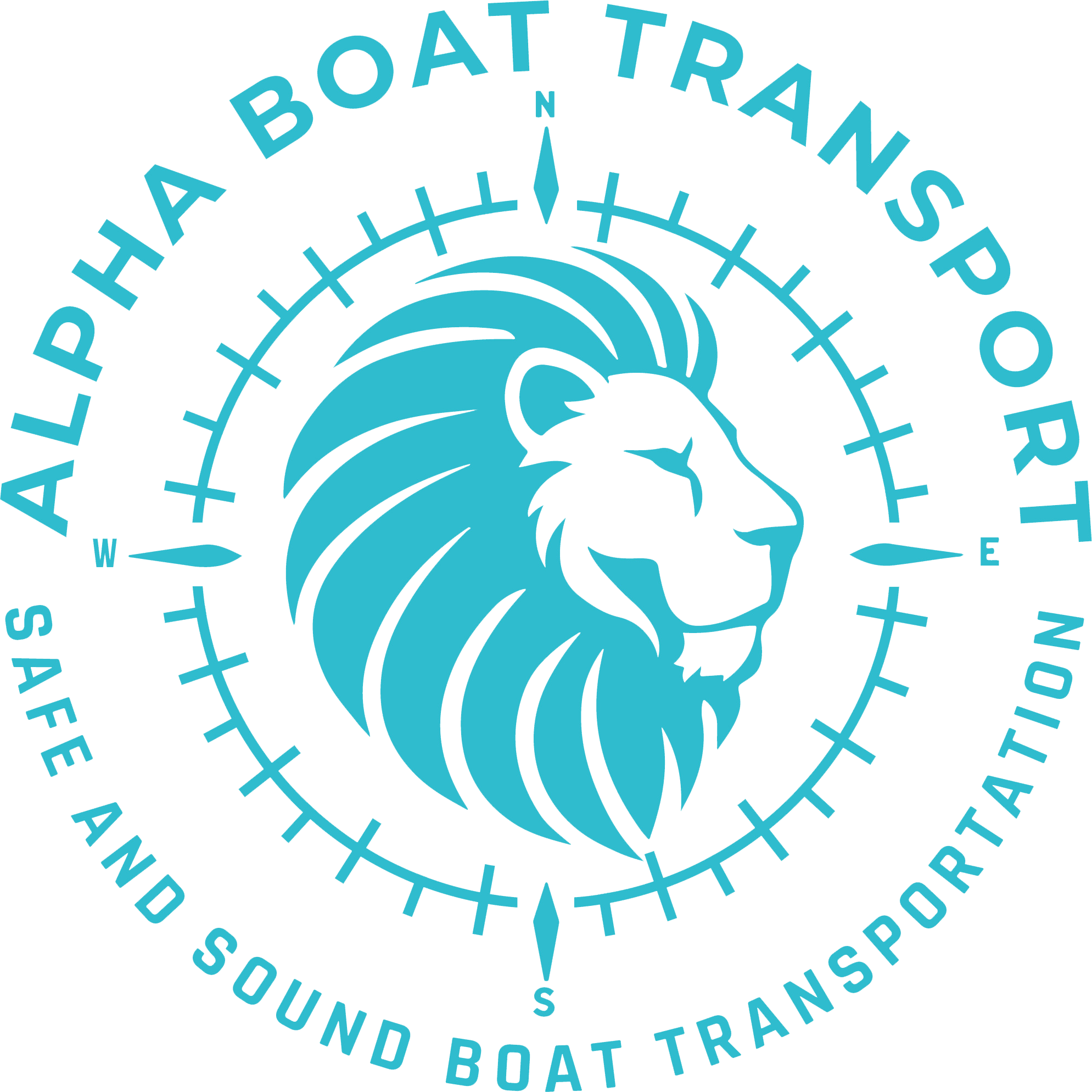The Smart Trailer Shake-Up: Why Your Boat Haul Just Got Pricier
Picture this. You’re shipping a 38-foot Sea Ray Sundancer from Fort Lauderdale up to Seattle. Shipping date’s locked. Permit paperwork’s filed. But then the quote comes back a few grand higher than you expected. Why? One word: smart trailers.
According to the latest insights from the smart trailer market report (https://www.futuremarketinsights.com/reports/boat-trailer-market), 2025 is shaping up to be the tipping point. We’re talking trailers equipped with IoT-enabled load balancing, real-time tire pressure data, and axle weight sensors. These bells and whistles aren’t optional anymore — not if you want legal clearance across states like Ohio and Colorado that enforce strict 20,000-pound axle loads.
Here’s the catch though — all that smart gear costs money. A lot of it. The American Transportation Research Institute pegs non-fuel operating costs in 2024 at $1.779 per mile, the highest ever recorded. And guess what’s fueling that spike? Yep. Trailer tech.
Now, let me tell you something — smart trailer boat transport isn’t just some fancy upgrade. It’s becoming a necessity.
Understanding Smart Trailer Boat Transport: Game Changer or Cost Driver?
We’ve come a long way from the steel-deck goosenecks of the 90s. Modern smart trailer systems integrate data-sharing capabilities that monitor your yacht’s balance, load compression, brake heat, axle torque – in real time. But here’s the rub: every upgrade adds weight, compliance measures, and insurance complexity. Folks expect better handling and lower risk, not realizing that tech-loaded trailers also mean higher base pricing.
From what we’re seeing here at Alpha Boat Transport, these rigs aren’t just pricey — they reshape the way we plan routes, quote deliveries, and secure DOT compliance. Especially when you’re dealing with long-distance boat hauling that crosses multiple regulatory zones.
One wrong tire pressure reading, and boom — you’ve triggered an auto-report violation in states like Nevada or Maryland, where DOTs monitor in-motion scale data. That’s the smart trailer paradox: it can save your rig from damage, but cost you more upfront. As most transport veterans now admit, old-fashioned hauls just can’t keep up.
Why Load Monitoring Sensors Are Changing the Game
These sensors do more than just blink at overpressure. They interact with brake control units, adjust ride height, and communicate with driver dashboards. And sure — they reduce blowout risk and uneven loading damage — but installing the full array can rack up over $4,500 per trailer. Still, ask anyone moving oversize watercraft through high-risk corridors like the I-10 West, and they’ll confirm: it’s non-negotiable.
Smart trailer tech ensures your motor yacht stays level on winding inclines through Utah. It protects that new gel coat finish while navigating tight turns in Tennessee. That kind of protective intelligence ain’t cheap — but it’s effective.
Internal Link: Curious about how long-distance hauling works with these systems? Visit long-distance boat hauling insights.
Tech Advances Driving Up Costs — and Expectations
Listen, here’s what’s really going down — expectations from boat owners are changing. And fast. They want GPS cargo visibility, predictive ETA tools, and drop-pin updates on where their $850K yacht is every step of the way.
Thing is, all that “visibility” tech requires hardware integration across the trailer rig. Satellite-linked units. Anti-sway calibration. Reinforced air-ride axles. You’re not just paying for transport anymore — you’re funding a rolling IT system.
Now that carriers are adopting tech-forward trailers across the board — especially within premium coastal networks like the East Coast I-95 corridor — even smaller boats are seeing that price hike ripple through. That’s happening even when you’re just moving a 25-footer from New Jersey to Florida.
Want to see how coastal routing creates unique cost bumps? Scope this breakdown: Boat Transport from New Jersey to Florida.
The Role of Regulation in Mandating Smart Trailer Use
Regulations are keeping us on our toes. States like Indiana and Missouri have already updated load declaration tools to mesh with smart trailer dashboards. Overheight sensors and dynamic weigh stations are interacting directly with trailer metering tech.
My cousin Sal, who handles compliance for a midwest carrier, told me last week, “If you don’t have predictive brake analytics on your trailer, you better not be crossing Illinois. They’ll ping you before you hit the exit ramp.”
Alpha Boat Transport stays ahead of all this by pre-checking routes based on regional tech compatibility. You won’t get stranded because your trailer can’t sync with a weigh-in-motion scale.
Check how we prep for different compliance zones here: Boat Transportation Services.
Real Risks Without Smart Tech — And the Price of Playing Catch-Up
Here’s a horror story: A 42-foot Fountain being hauled from Texas to Georgia last April. The hauler skipped on sensor-equipped trailers. Didn’t catch uneven weight load until late Arkansas. Trailer fishtailed, punctured a hull rib, and cracked two stanchions. Cost the owner $18K in repairs — not counting the claim battle.
That’s why this new wave of smart trailer boat transport isn’t some futuristic fantasy. It’s the industry standard for anyone hauling watercraft across state lines — especially with climate impacts, tighter bridge weight limits, and jurisdictions plugging directly into trailer data systems.
A smarter rig ain’t just about bells and whistles. It’s about reducing accident exposure, avoiding fines, and saving your boat from highway shenanigans nobody wants to think about.
Want to keep your prep checklist dialed in? Check out: Motor Yacht Checklist.
The Alpha Advantage: Expert-Led, Tech-Smart, Risk-Tuned
At Alpha, we’re not just tacking on tech. We’ve engineered entire routing protocols to pair with our smart trailer fleet. Each transport goes through custom weight profiling. We use low-angle beam-load scanners and onboard compliance mapping before we move an inch.
Boat owners trust us because we keep crews trained on every hardware system — from integrated GPS beltpacks to axle load balancing software. And we don’t cut corners. That’s why we’ve become a preferred transporter across sectors ranging from commercial yacht brokers to private catamaran transfers.
See what that trust looks like in real-world metrics here: Best Boat Transport Companies Report.
Expert Insights: What to Ask Before Booking Your Haul
So anyway, what should you actually be asking your hauler before you book?
- Are your trailers equipped with IoT-based load balancing?
- Do you offer geo-fencing and live status updates?
- Can your team preclear routes based on updated WIM regulations?
- What kind of error alerts do your drivers receive mid-haul?
- Do your fleet trailers comply with all DOT sensor syncing mandates?
If you don’t get confident “Yes” answers across the board — pick up the phone and call someone who can. (Ahem.)
Even better, cross-check their prep process here: Boat Transport Preparation Guide.
Frequently Asked Questions
What is smart trailer boat transport?
Smart trailer boat transport involves using IoT-equipped trailers that monitor axle loads, tire pressure, brake health, and road compliance in real time. They’re designed to meet updated DOT regulations and improve hauling safety.
Why are transportation costs rising for boat owners?
Advances in trailer technology — such as sensor arrays, load-balancing software, and compliance systems — are driving up non-fuel operating costs. This directly raises pricing for boat transport services utilizing smart trailer configurations.
Is a smart trailer necessary for every boat move?
Not always — but for oversize or long-distance hauls, smart trailers help avoid DOT violations, equipment damage, and rerouting issues. States like California and Ohio expect this level of tech on high-value loads.
Do smart trailers reduce insurance risk?
Absolutely. With real-time data and preventative alerts, smart trailers offer lower mechanical failure rates and can demonstrate driver due diligence — making them attractive to insurers covering marine logistics.
What should I ask my hauler about smart trailer tech?
Make sure they explain sensor placement, live route tracking, axle load monitoring, and brake temperature systems. Ask if their drivers have training with electronic logbook-synced trailer data.
How do I prepare my vessel for smart trailer transport?
Follow a preparation checklist, secure all onboard gear tightly, and confirm your hauler’s rig dimensions match state height and width restrictions. Check this detailed guide: Catamaran Transport Checklist.
Can I monitor my boat during a smart trailer haul?
Yes. Most smart haulers — including Alpha — provide tracking dashboards that show location, ETA changes, and key system alerts during the trip. Transparency is a must in 2025.

